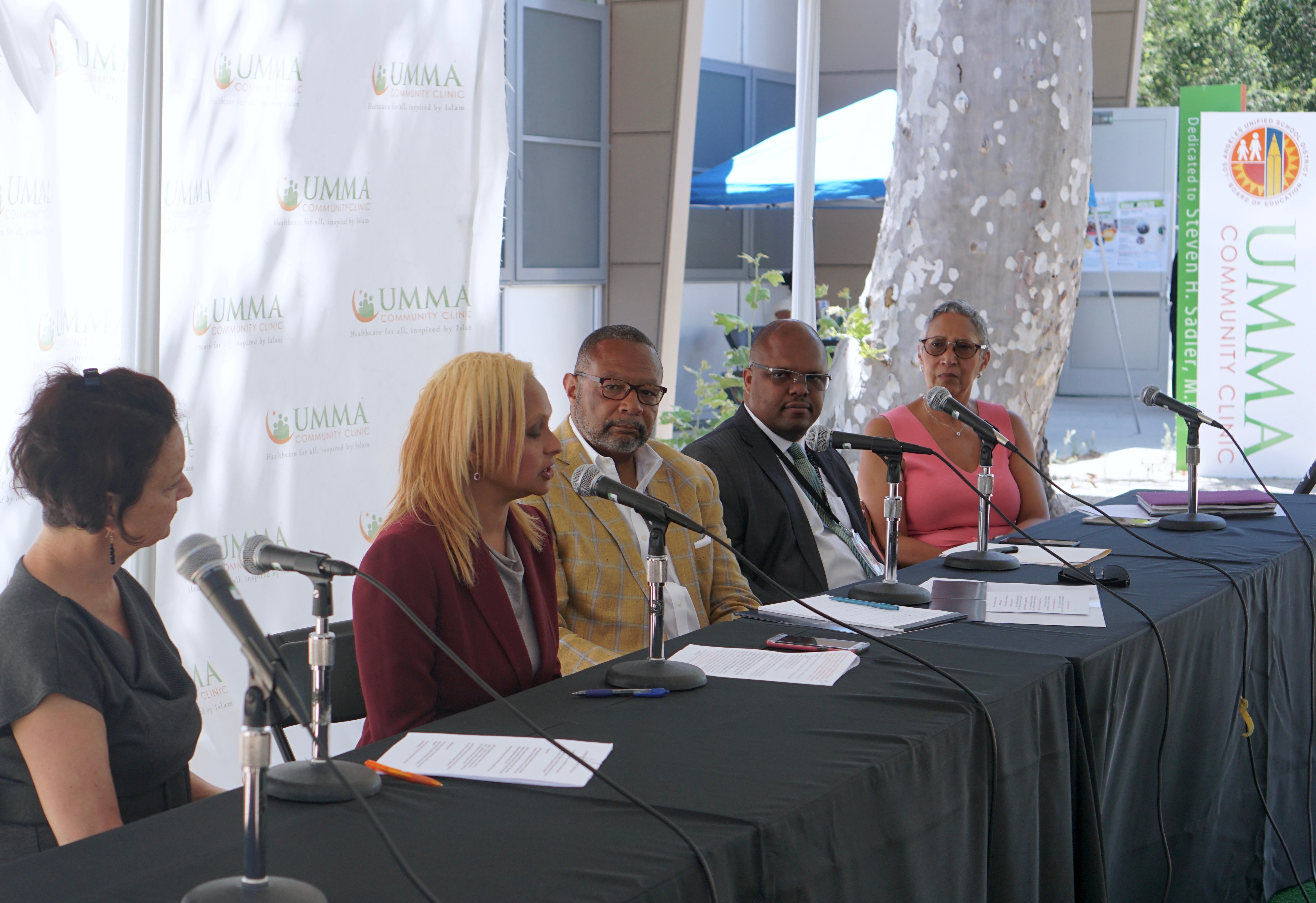Building Resilience and Improving Outcomes

“Overcoming poverty is not a task of charity, it is an act of justice. Like Slavery and Apartheid, poverty is not natural. It is man-made and it can be overcome and eradicated by the actions of human beings. Sometimes it falls on a generation to be great. YOU can be that great generation” –Nelson Mandela
A few weeks before the 2016 election, I decided to stop watching television news. For a political news junkie like myself that was quite an undertaking (or rather non-undertaking) on my part. However, the world looked dismal and I needed to shield myself from what I perceived to be the trauma imparted by the news. Fast forward to ten months later, and I have maintained a fairly strict regimen of not watching the news. Now mind you, I remain completely aware of what is going on and perhaps am even more informed than the average viewer.

UMMA Clinic hosted a public briefing on the importance of trauma-informed care at their Fremont Wellness Center.
Two weeks ago, I faltered in my resolve and I watched the news and what I saw saddened and horrified me. I saw pure hate unmasked and had to explain to my son what white supremacy, racism and Nazism means. He stared at me blankly as the concept of hating someone based on the color of their skin was completely unfathomable to him. And I am happy for that, but now he has been exposed to the concept. I have no doubt that for many of us watching the events in Charlottesville, this was a traumatic event that we had to find a way to process. I was reminded of Mandela’s quote regarding the artificial nature of poverty and can’t help but equate it to today’s toxic culture surrounding a variety of differences and the man-made trauma that infects our soils and the communities around us.
Roughly one in three adults have experienced some form of trauma during childhood. Trauma that, as a Center for Disease Control and Prevention (CDC) and Kaiser Permanente study has shown, has serious repercussions on physical health and reduces life expectancy. With so many having experienced a deeply resonant, life-changing adverse event, as a society, how are we showing each other that no one is alone and caring for the whole person?
We at UMMA believe it starts with us. It starts with you. It starts with our community partners, our friends, families, coworkers. It takes countless “I’s” to change the “we” and understand the need for inclusion. It takes persistence.
Recognizing that trauma impacts every aspect of life beyond health, we’re striving to raise awareness about how providing trauma-informed services can build resilience and improve outcomes.
This past Friday, August 18th, UMMA hosted a public briefing, a call for Trauma-Informed Care at our Fremont Wellness Center. Under the UMMA umbrella, we brought together California Assembly member Reginald Byron Jones-Sawyer Sr., community leaders and scholars from the California Psychological Association, UCLA, the LAUSD, the LA Trust and the Los Angeles School Police Department, to discuss how trauma-informed care can improve outcomes in all facets of society, from health, to education and public safety.
I was honored to provide testimony on the psychological impact of trauma and the fact that I grew up in a neighborhood that sadly had way too many individuals walking about having experienced adverse childhood events. I, like many others from such neighborhoods, did develop resilience and paid it forward. However, what is occurring today nationally disturbs me to my core. We must act. We must all engage.
Mahatma Gandhi once said, “If we could change ourselves, the tendencies in the world would also change. As a man changes his own nature, so does the attitude of the world change towards him…We need not wait to see what others do.” Waiting for the “right” political climate to address injustice, hate, and inequality is not an option.
The first step to providing meaningful care is recognizing that every person that we interact with is likely going through something that may be difficult for them to express, and consequently may be informing their interactions. If we’re more observant, if we listen intently and show empathy every time we communicate with someone, that in itself is a step in the right direction. Much can be accomplished by the simple human act of trying to understand another’s perspective.
At UMMA, we are committed to seeing that every human being is treated with the dignity they deserve. Our team listens to the needs of our patients and connects them with the care they need, be it physical, behavioral or referrals to social services from our community partners. We are committed to helping people confront their painful experiences, heal from them and grow resilient, and we will continue to advocate for a trauma-informed approach to human service, as well as services for all regardless of race, creed, gender or religion. Our differences make us stronger.
